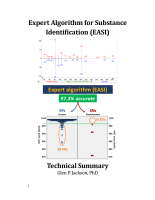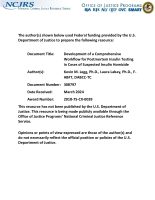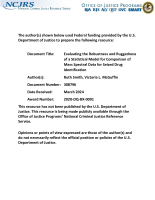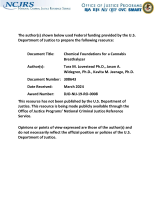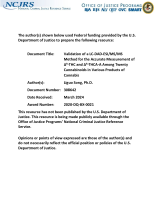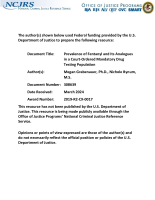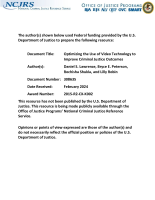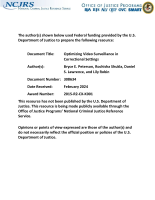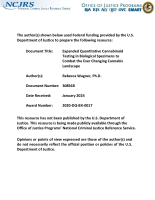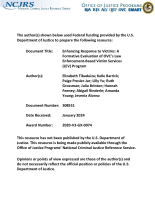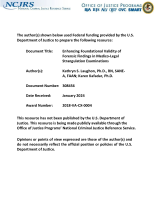Research methods
Webinar Transcript: NIJ FY 2024 Research and Evaluation on School Safety
This webinar provided information on the NIJ FY 2024 Research and Evaluation on School Safety solicitation. In collaboration with BJA, this solicitation will seek applications for rigorous research and evaluation projects to fill knowledge gaps in two topical areas:
- Studies on the root causes and consequences of school...
Gratitude for Bystander Action Varies by Peer Intervention and Social Norms
Expert Algorithm for Substance Identification (EASI)
Development of a Comprehensive Workflow for Postmortem Insulin Testing in Cases of Suspected Insulin Homicide
Evaluating the Robustness and Ruggedness of a Statistical Model for Comparison of Mass Spectral Data for Seized Drug Identification
Webinar Transcript: NIJ FY 2024 Research and Evaluation on Youth Justice Topics
This webinar will provide an overview of the NIJ FY 2024 Research and Evaluation on Youth Justice Topics solicitation. In collaboration with the Office of Juvenile Justice and Delinquency Prevention, NIJ seeks applications for research and evaluation projects that inform policy and practice in the field of...
NIJ FY24 Field-Initiated Action Research Partnerships
Law Enforcement Officers Safety and Wellness: A Multi-Level Study (2024)
Mechanisms Underlying Desistance from Crime: Individual and Social Pathways
Nashville Longitudinal Study of Youth Safety and Wellbeing
Webinar Transcript: NIJ FY 24 Evaluation on Desistance
NIJ hosted a webinar providing an overview of the NIJ FY 24 Evaluation on Desistance Solicitation, in which NIJ seeks proposals for rigorous evaluations of desistance-focused interventions to advance understanding of strategies that might aid in the desistance process and identify innovative approaches to measure the desistance process.



